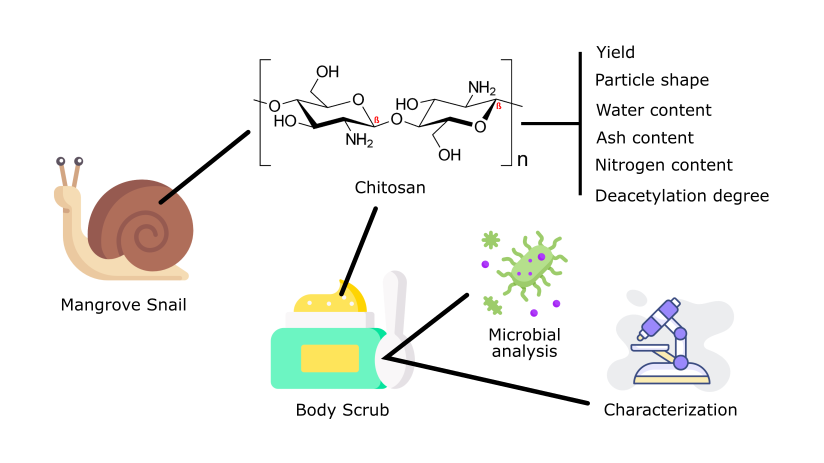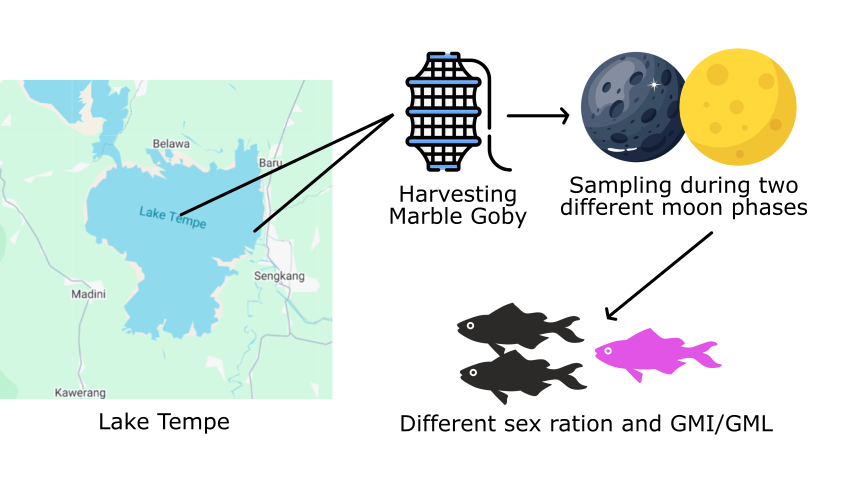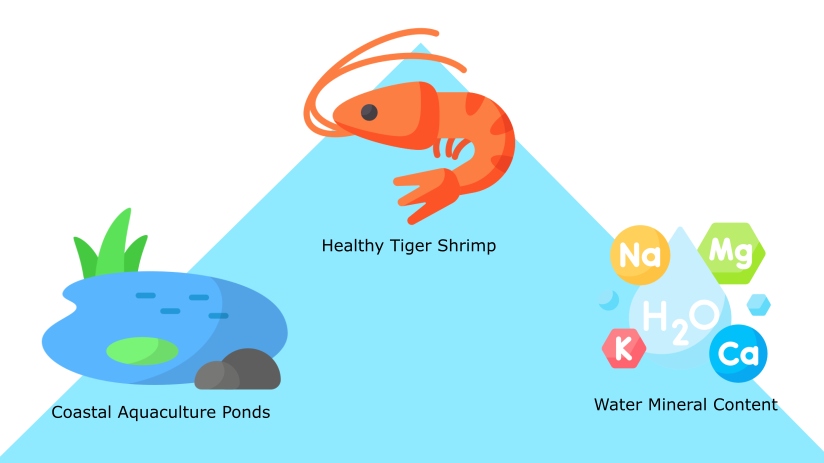
 ETFLIN
Notification
ETFLIN
Notification

e-ISSN 3063-5543
DOI 10.58920/aqlis | aqlis@etflin.com (Managing Editor)
Aquatic Life Sciences is an international, peer-reviewed journal focused on advancing knowledge of living systems in aquatic environments. The journal covers all biological aspects of life in freshwater, marine, and brackish ecosystems, including molecular, organismal, ecological, and evolutionary perspectives. The journal is affiliated with the Faculty of Fisheries and Marine Sciences, Mulawarman University.
We publish research that explores how aquatic organisms develop, adapt, interact, reproduce, and sustain ecosystems, as well as how they respond to natural and human-induced changes. The journal particularly values studies that enhance our understanding of biodiversity, physiological function, life strategies, and ecological resilience.
Aquatic Life Sciences encourages interdisciplinary work and innovation that deepen insights into the biology and sustainability of aquatic life, from microbes and invertebrates to fish, aquatic plants, and megafauna.
🧬 Molecular and cellular biology of aquatic species
🐟 Biodiversity, taxonomy, and evolutionary biology
🌿 Physiology, behavior, and life cycle strategies
🦠 Aquatic microbiomes and microbial ecology
🪸 Population and community ecology
💧 Stress biology, ecotoxicology, and environmental change
🧫 Aquatic animal health, pathology, and disease dynamics
🐠 Biology of aquaculture and aquatic resource management
🌊 Interactions between organisms and aquatic ecosystems
Assoc. Prof. Md. Hasan Faruque, Ph.D.
Department of Fisheries, Faculty of Biological Sciences, University of Dhaka, Dhaka 1000, Bangladesh
Expertise: Fisheries Resources Management; Aquatic Pollution; Biodiversity Conservation; Aquaculture
Google Scholar Scopus
Jaspal Singh Chauhan, Ph.D.
Department of Himalayan Aquatic Biodiversity
H.N.B. Garhwal University- A central University,
Srinagar, Garhwal, Uttarakhand, India
Expertise: Water Quality; Environmental Analysis; Environmental Pollution; Water Analysis; Environmental Monitoring; Wastewater Treatment; Water Treatment; Water Resources Management
Scopus Google Scholar ResearchGate
Dr. Ir Muhamad Firdaus, MP.
Department of Fisheries Product Technology, Faculty of Fisheries and Marine Science, Brawijaya University, Malang, East Java 65145, Indonesia
Expertise: Seaweed; Mangrove; Functional foods; Nutraceutical
Google Scholar Scopus ORCID ResearchGate
Dr. Gad Elsayed Mohammed Salem
Department of Microbiology, National Organization for Drug Control &
Research, Cairo, Egypt
Expertise: Microbiology; Microbial biotechnology
Google Scholar Scopus ORCID ResearchGate
Rahmi Nurdiani, S.Pi., M.App.Sc., Ph.D.
Department of Fisheries Product Technology, Faculty of
Fisheries and Marine Science, Brawijaya University, Malang, East Java
65145, Indonesia
Expertise: Biotechnology; Seafood; Fish protein hydrolysate; Active packaging
Google Scholar Scopus ORCID ResearchGate
Dr. May Thazin Thant
Department of Pharmacognosy, University of Pharmacy,
Yangon 11031, Myanmar
Expertise: Natural Compounds; Pharmacognosy
Google Scholar Scopus ORCID ResearchGate
Prof. Dr. Sc. Asep Awaludin Prihanto, M.P.
Department of Fisheries Product Technology, Faculty of
Fisheries and Marine Science, Brawijaya University, Malang, East Java
65145, Indonesia
Expertise: Food Microbiology; Food safety; Enzyme technology; Aquatic biotechnology
Google Scholar Scopus ORCID ResearchGate
Dr. Htoo Tint San
School of Molecular Bioscience, College of Medical,
Veterinary & Life Sciences, University of Glasgow, Glasgow G128QQ, Scotland
Expertise: Natural product
Google Scholar Scopus ORCID ResearchGate
Dr. Muhammad Alfid Kurnianto, S.Pi., M.Si.
Department of Food Technology, Faculty of Engineering,
University of Pembangunan Nasional Veteran, Surabaya, East Java 60924, Indonesia
Expertise: Food microbiology
Google Scholar Scopus ORCID ResearchGate
Anne Mumtaza Putri, S.Pi., M.Si.
Department of Fisheries Product Technology, Faculty of
Technology, Institut Sains dan Teknologi Muhammadiyah (INSTEKMU) Tarakan, North
Kalimantan 77111, Indonesia
Ayunda Ainun Nisa, S.Si., M.Eng.
Life and Agricultural Sciences, University of Tsukuba,
Ibaraki, Japan, 305-8577
Sri Argo Pradanto, S.Pi., M.T.P.
Department of Agricultural Product Technology, Faculty of Agriculture and Forestry,
University of Sulawesi Barat, Majene, West Sulawesi 91412, Indonesia
Nurfadilah, S.Kel., M.Si.
Department of Marine Science, Faculty of Fisheries and
Marine Science, Mulawarman University, Samarinda, East Kalimantan 75242,
Indonesia
Directory of Open Access Journals (DOAJ)
Scilit
Google Scholar
Open Ukrainian Scientific Citation Index (OUCI)
Dimensions
ResearchGate
The reviewer's name will automatically appear in this list after they agree to be visible as a reviewer of an article in our peer review submission system. The names are ordered by the date of their latest contribution in real time. This makes the number and order of reviewers in this list dynamic.
Dr Rahman Rahman (Google Scholar)
Department of Marine Science, Faculty of Fisheries and Marine Science, Pattimura University, Ambon, 97233, Indonesia
Dr Dewi Kresnasari (Google Scholar)
Aquatic Resource Management Doctoral Program, Faculty of Fisheries and Marine Sciences, Universitas Diponegoro, Indonesia
Dr Uchechukwu Enyidi (Google Scholar)
Michael Okpara University of Agriculture, Umudike, Department of Fisheries and Aquatic Resources Management, Umuahia, Abia State, Nigeria
Dr Diah Permata Wijayanti (Google Scholar)
Department of Marine Science, Faculty of Fisheries and Marine Sciences, Universitas Diponegoro, Jl. Prof. Soedarto, SH. Tembalang, Central Java, Semarang, 50725, Indonesia
Dr Ronal Kurniawan (Google Scholar)
Faculty of Fisheries and Marine Science, Universitas Riau, Pekanbaru, Indonesia
Dr Sri Hastuti (Google Scholar)
Department of Aquaculture, Fisheries and Marine Science, Diponegoro University, Jl. Prof. Soedharto, SH, Semarang 50275, Indonesia
Dr Nurhalisa Nurhalisa (Google Scholar)
Department of Aquaculture, Faculty of Fisheries and Marine Science, Halu Oleo University, Indonesia
Dr Diana Arfiati (Google Scholar)
Faculty of Fisheries and Marine Sciences, Universitas Brawijaya, Jalan Veteran, Malang 65145, East Java, Indonesia
Dr Fathurrahman Lananan (Google Scholar)
Faculty of Bioresources and Food Industry, Universiti Sultan Zainal Abidin, Besut,Terengganu, 22200, Malaysia
Dr Retno Cahya Mukti (Google Scholar)
Aquaculture Study Program, Faculty of Agriculture, Sriwijaya University, Indonesia
Dr Agustina Agustina (Google Scholar)
Department of Aquaculture, Faculty of Fisheries and Marine Science, Mulawarman University, Samarinda, East Kalimantan, Indonesia
Dr Rethinam Senthil (Google Scholar)
Department of Pharmacology, Saveetha Dental College and Hospital, SIMATS, Saveetha University, Tamilnadu, Chennai, 600 077, India
Dr P. Syam Prasad (Google Scholar)
Department of Physics, National Institute of Technology Warangal, Telangana, Warangal, 506004, India
Dr Samiyappan Manickavasagam (Google Scholar)
Tamil Nadu Dr. J. Jayalalithaa Fisheries University, Directorate of Sustainable Aquaculture, Thanjavur Centre for Sustainable Aquaculture (Thanjavur CeSA), Tamil Nadu, Thanjavur, 614 904, India
Dr Mohammad Farkan (Google Scholar)
Jakarta Technical University of Fisheries, Ministry of Marine Affairs and Fisheries, Republic of Indonesia, Department of Aquaculture, Jl. Raya Pasar Minggu, Jakarta, 12520, Indonesia
Dr Lukman Mile (Google Scholar)
Department of Fishery Products Technology, Faculty of Fisheries and Marine Sciences, Universitas Negeri Gorontalo, Gorontalo, Indonesia
Dr Novi Luthfiyana (Google Scholar)
Program Studi Teknologi Hasil Perikanan, Fakultas Perikanan dan Ilmu Kelautan Universitas Borneo Tarakan, Kalimantan Utara, Indonesia
Dr Arafik Lamadi (Google Scholar)
Department of Aquaculture, Faculty of Marine and Fisheries Technology, State University of Gorontalo, Gorontalo, Indonesia
Dr Agus Hartoko (Google Scholar)
Department of Aquatic Resources Management, Faculty of Fisheries and Marine Science, Diponegoro University, Jalan Prof Jacub Rais, Central Java, Semarang, 50275, Indonesia
Dr Vidya S. Bharti (Google Scholar)
ICAR-Central Institute of Fisheries Education, Mumbai, 400061, India
Dr Alokesh Kumar Ghosh (Google Scholar)
Fisheries and Marine Resource Technology Discipline, Khulna University, Khulna, Bangladesh
Dr Muhammad Hanif Azhar (Google Scholar)
Department of Aquaculture and Fish Diseases, Institute of Graduate Studies in Sciences, Istanbul, Turkey
Dr Mang'era Samwel Mnyoro (Google Scholar)
College of Fisheries and Aquatic Sciences, Mwalimu Julius K. Nyerere University of Agriculture and Technology, P.O. Box 976, Musoma, Tanzania
Dr Muslim (Google Scholar)
Department of Oceanography, Faculty of Fisheries and Marine Science, Diponegoro University, Semarang, Indonesia
Dr Medy Ompi (Google Scholar)
Aquatic Bio-Ecology Laboratory, Faculty of Fisheries and Marine Sciences, Sam Ratulangi University, Manado, Indonesia
Dr Apriansyah (Google Scholar)
Tanjungpura University, Marine Science Department, West Borneo, Pontianak, 78124, Indonesia
Dr Desy Arisandi (Google Scholar)
Fisheries Product Technology, Faculty of Fisheries and Marine Science, Brawijaya University, Malang, 65145, Indonesia.
Dr Adriani (Google Scholar)
Undergraduate Medical Study Program, Faculty of Medicine, Universitas Muslim Indonesia, Makassar, 90234, Indonesia
Dr Dewi Ratih Tirto Sari (Google Scholar)
Department of Pharmacy, Faculty of Health Science, Ibrahimy University, Situbondo, Indonesia
Dr Sathish Chennuri (Google Scholar)
Indian National Centre for Ocean Information Services, Hyderabad - 500 090, Telangana, India
Dr Mirza Gulam Ahmad (Google Scholar)
Fishery Product Technology, Faculty of Fisheries and Marine Science, Brawijaya University, Malang, Indonesia.
Dr Muhammad Akbarurrasyid (Google Scholar)
Department of Fish Culture, Pangandaran Marine and Fisheries Polytechnic, Pangandaran, Indonesia
Dr Desy Amalia Hidayati (Google Scholar)
Aquatic Resources Management, Faculty of Veterinary, Marine and Fisheries, University of Nusa Cendana, Kupang City, Indonesia
Dr Karina Farkha Dina (Google Scholar)
Department of Aquaculture, Faculty of Fisheries and Marine Science, Pancasakti University Tegal, Tegal City, Central Java, Indonesia
Dr Novi Luthfiyana (Google Scholar)
Department of Fishery Product Technology, Faculty of Fisheries and Marine Science, Borneo Tarakan University, North Kalimantan, Indonesia
Dr Nugroho Wiratama (Google Scholar)
Center of Excellence in Aquatic Animal Health Management (CE AAHM) laboratory, Faculty of Fisheries, Kasertsart University
Dr Rahmi Valina (Google Scholar)
Department of Fisheries Science, Faculty of Agriculture, University of Dumoga Kotamobagu, Kotamobagu,Indonesia
Miss Nurviana Wulandari (Google Scholar)
Department of Aquatic Product Technology, IPB University (Bogor Agricultural University), Bogor, Indonesia
Dr Sugiyati Ningrum (Google Scholar)
Department of Agriculture, College of Agriculture,National Chung Hsing University, No. 145, Xingda Rd., South District, 402, Taichung City, Taiwan
Dr Winda Firdayanti (Google Scholar)
PT. Putera Buana Foods
Dr Lukman Mile (Google Scholar)
Department of Fishery Products Technology, Faculty of Fisheries and Marine Sciences, Universitas Negeri Gorontalo, Gorontalo, Indonesia
Dr Adenia Cahyatie Aprillia (Google Scholar)
Departement of Fisheries Product Technology, Institut Sains dan Teknologi Muhammadiyah, Tarakan
Dr Muh. Alsere Bardian Sahaba (Google Scholar)
Faculty of Marine and Fisheries Technology, Universitas Negeri Gorontalo
Dr Dewi Wulandari (Google Scholar)
Department of Fisheries Biotechnology, Faculty of Mathematics and Natural Sciences, Ganesha University of Education, Bali 81116, Indonesia
Dr Samiyappan Manickavasagam (Google Scholar)
Tamil Nadu Dr. J. Jayalalithaa Fisheries University, Directorate of Sustainable Aquaculture, Thanjavur Centre for Sustainable Aquaculture (Thanjavur CeSA), Tamil Nadu, Thanjavur, 614 904, India
Dr Endah Setyo Rini (Google Scholar)
Department of Aquaculture, Faculty of Fisheries and Marine Science, Diponegoro University, Semarang, Indonesia
Dr Chukwuma Ofor (Google Scholar)
Department of Fisheries and Aquatic Resources Management, College of Natural Resources and Environmental Management, Michael Okpara University of Agriculture Umudike, P. M. B. 7267, Umuahia, Abia State, Nigeria
Any enquiry related to the journal, please reach us through email below.
Aquatic Life Sciences editorial's email: aqlis@etflin.com (Managing Editor)
Office: Sungai Manonda Street, Duyu, Tatanga,
Palu City 94225, Indonesia.
WhatsApp: +62 82216335184 (Customer Service)
Publisher email: halo@etflin.com (Customer Service)
All papers published in the journal are freely accessible immediately after publication. The papers are freely available to read, shared, and reproduced in any form with proper citation to the original work. Open access is a property of individual works and community standards that will enforce proper attribution and responsible use of the published work.
Publishing a paper in the journal is free. The journal do not take submission fees, editorial processing charges, article processing charges, page charges, or color charges.
The journal is licensed under the Creative Commons Attribution (CC BY) 4.0 International License.
The authors retain the copyright © of their published works. However, the published work of the
authors can be read, downloaded, shared, and cited with proper reference to the original work.
You may read this article for a better Understanding of Copyright.

Research Article
Open Access
Tuesday, 13 January 2026
Ecological and Economic Significance of Mangroves: A Comprehensive Review
Abduljaleel K et al.
Read more
Research Article
Open Access
Monday, 5 January 2026
Prevalence and Intensity of Endoparasites in Ribbonfish (Trichiurus lepturus) from (Lamongan) and Tamperan (Pacitan) Fish Landing Sites (TPI)
Nur Afidatul Himma et al.
Read more
Research Article
Open Access
Sunday, 28 December 2025
Therapeutic Efficacy of Crinum Asiaticum Leaf Extract Against Aeromonas Hydrophila Infection in Juvenile Common Carp (Cyprinus Carpio L.)
Zahrina Hibatul Azizah et al.
Read more
Research Article
Open Access
Tuesday, 2 December 2025
Assessment of Water Quality Parameters in Penaeus monodon Culture Ponds: Implications for Sustainable Shrimp Aquaculture
Muh Yusril AL Tulus et al.
Read more
Research Article
Open Access
Monday, 24 November 2025
Characteristics of Crude Pepsin Enzyme from Catfish Stomach (Clarias sp.)
Erlando Fatiranes et al.
Read more
Research Article
Open Access
Wednesday, 19 November 2025
Physicocemical and Microbiologycal Characterization of Hydroxyapatite Based Toothpaste From Freshwater Mussel (Pilsbryoconcha exilis) Shell
Stephanie Octavia et al.
Read more
Research Article
Open Access
Friday, 14 November 2025
Water Quality Analysis of the Sengkaring River for Fish Farming Feasibility in Pekalongan Regency
Fini Afidah et al.
Read more
Research Article
Open Access
Monday, 30 June 2025
Potential of Chitosan from Mangrove Snail Shells (Telescopium sp.) in Body Scrub Formulation
Kevin Andreas Sihombing et al.
Read more
Research Article
Open Access
Monday, 30 June 2025
Sex Ratio and Gonadal Maturity of Marble Goby (Oxyeleotris marmorata) in Lake Tempe, Indonesia
Nurul Mutiara Irwan et al.
Read more
Research Article
Open Access
Monday, 30 June 2025
Study of Mineral Content in Pond Water for Traditional Farming of Black Tiger Shrimp (Penaeus monodon) in Tarakan City
Serianto Simon et al.
Read more
Research Article
Open Access
Monday, 30 December 2024
Invasive Teak Defoliator Hyblaea puera Outbreak Threatens Mangrove Ecosystems in Kerala, India: Implications for Biodiversity and Coastal ResilienceAbdul Jaleel K. et al.

Research Article
Open Access
Monday, 24 June 2024
Extraction of Active Compounds from Mangrove Snail Meat (Terebralia sulcata) as an Antibacterial Agent Against Escherichia coliAgus Tri Yulianto et al.

Research Article
Open Access
Monday, 24 June 2024
Morphological Identification of Bacteria from Tuna Fish Isolates (Thunnus sp.) in Kondang MerakAgus Tri Yulianto et al.

Research Article
Open Access
Friday, 14 June 2024
Land Suitability Assessment for White Shrimp (Litopenaeus vannamei) Ponds Using Geographic Information System in the Mulyorejo Subdistrict, Surabaya, East JavaFajrian Hardiana et al.

Research Article
Open Access
Monday, 16 December 2024
Aquaculture Management of Blue Swimming Crab (Portunus pelagicus) in Boncong Bancar Marine Farming Facility, Tuban Regency, East Java Province, IndonesiaJuahir Juahir et al.
As a publisher, we create, store, and utilize cookies to enhance the features and services we provide. Several necessary cookies are implemented as part of the website's functionality.
_ga | etflin.com
The purpose of this cookie, set by Google Analytics, is to track the number of site visitors by remembering whether or not you have previously visited our website.
The following cookies are utilized to identify and authenticate users. By utilizing our service and registering an account within our system, you are consenting to the use of the following cookie. We do not share this data to any third party.
username | etflin.com
We employ this cookie to recognize users who have logged into the user system, ensuring that the data you manage is labeled with your username.
email | etflin.com
Email is utilized as our communication tool to send notifications, conduct initial registration verification, and account filtering.
name | etflin.com
We utilize your name to display on the website menu, indicating that you have successfully logged into the system.
token | etflin.com
We use a token to authenticate and identify your login session.
We Revolutionize Sciences, We Publish Sciences, We Are Scientist
ETFLIN